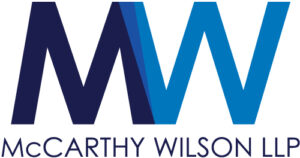Last year Governor Ehrlich proposed additional funding to address a problem that persists, particularly in low cost rental housing in the State, of children being exposed to lead paint. Maryland adopted a Lead Poisoning Prevention Program in 1994, and has a detailed set of laws designed to address the issue of lead paint. It includes in Title 6 of the Maryland Environmental Article a detailed procedure for property owners designed to eliminate lead paint as a risk and reward the owners who comply with limited liability if someone still claims lead paint exposure.
The law requires that all privately owned rental properties (including apartment buildings) built before 1950 be registered with the Maryland Department of the Environment. Owners of properties built between 1950 and 1978 may also be registered to take advantage of the law. Landlords are required to deliver to each new tenant a Notice of Tenants Rights, and a pamphlet about lead paint.
The statute requires that each time a new tenant comes in to the property, it must meet Full Risk Reduction standards regarding lead paint. This includes such things as assuring that there is no flaking lead paint or dust, having the property tested, and certified by an accredited inspector. This process must be repeated each time a property is rented to obtain statutory protection for the owner.
If the law is complied with, and a tenant still claims to have been exposed to lead paint, Title 6 contains a detailed procedure as to how such claims are handled. This includes the requirement that the owner be given written notice of the claim. The owner may then make a “qualified offer,” within 30 days, usually to the parent or guardian of a child who has allegedly been exposed. The law provides that this offer is to pay for necessary medical treatment for lead exposure (with a current cap of up to $7,500), and for relocation expenses while the lead problem is removed from the rental unit (with a current cap of $9,500). Relocation expenses include moving costs and rent at a temporary location.
If the tenant rejects that qualified offer, the law provides that the owner is immune from suit if the landlord has complied with all the requirements of the law. There may be issues of whether the inspection before the tenancy began was done correctly or by a certified inspector, but if it was then the landlord is protected.
Lead paint suits also occur regarding the sale of property. Anyone who has recently bought a home may have seen in the stack of documents exchanged at settlement a Lead Disclosure that is required under federal law. This is designed to assure that inspections of property prior to sale look for the presence of lead paint, and sellers (and real estate agents) need to be aware that such a disclosure certifying the home has no lead paint problem will be required.
Despite the fact that lead paint has been a legal issue for decades, it is still a health risk that the law regulates in detail. Montgomery county residents who have questions can go to the County government web site, or consult the County Department of the Environment of the Office of Landlord Tenant Affairs.

